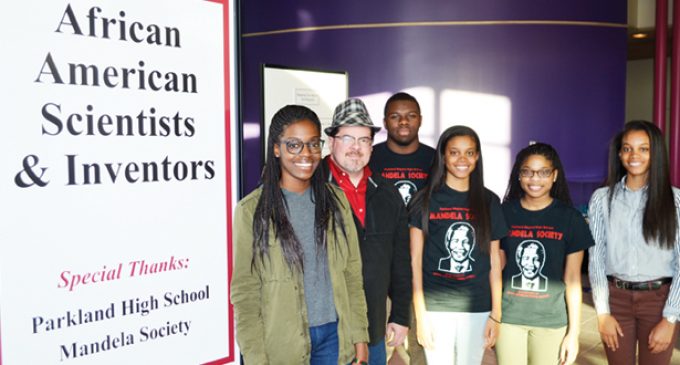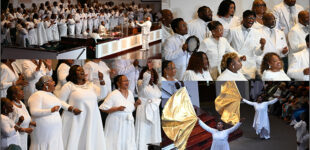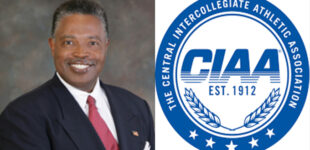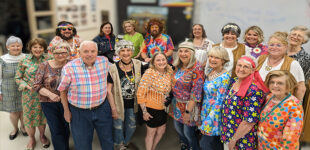Exhibit shows contributions of Parkland’s Mandela Society

Above: Photos by Todd Luck- Mandela Society President Nonnie Egbuna, Advisor Tripp Jeffers with members Shawn Brim, Alexis Douglas, Phyllis Elliott and Ashley Douglas, were among those involved with SciWork’s African-American Scientists & Inventors exhibit.
The Super Soaker was invented by African-American engineer Lonnie Johnson.
This is just one of the facts on display this month in SciWorks’ African-American Scientists & Inventors exhibit, which features five scientists that were researched by students in the Mandela Society, a Parkland High School club that focuses on race and social issues. Research on ten other scientists in the exhibit was done two years ago by students at North Forsyth High School. The display features information provided by the students, along with visuals added by the museum. Some displays even have QR codes to access more information about the scientists’ fields of study online.
“We researched five black scientists, their inventions and their contributions to modern society,” said Mandela Society President Nonnie Egbuna.
She said that the club divided into groups to research each scientist, focusing on lesser known scientists who contributed to modern society. Along with Johnson, the scientists they researched include Patricia Bath, who is the first African-American to complete an ophthalmology residency, the first black female doctor to receive medical patients and the inventor of the Laserphaco Probe; Dr. Herbert Smitherman, a Proctor & Gamble chemist who contributed significantly to products like Crest toothpaste and Crush soda; and Claudia Alexander, a NASA scientist who was the last project manager of the Galileo mission to explore Jupiter.
“It goes to show that people like us have dreams too and, with the right type of work ethic and dedication, you can create something that people really use on a daily basis,” said Shawn Brim, a Mandela Society member who wants to go into the biomedical field.
Elliott did her exhibit on her cousin Dr. Jabari Elliott, a researcher and Ph.D-MD student at Washington University. She said she thought it would help inspire people like her who want to be scientists, to see the path they can take to achieve their dream.
“I decided to get someone more modern and younger – because he was still in medical school – to be more relatable to us,” said Phyllis Elliott.
SciWorks Director Paul Kortenaar said he was so impressed with the student’s work that he’s considering taking the parts of the exhibit and putting them in related parts of the museum for year-round display.
“African-American scientists shouldn’t only be honored in February,” he said. “People who come to visit the museum should be aware of the research that goes into these new inventions and new discoveries all the time, not just during February.”
SciWorks is open Tuesday through Friday from 10 a.m. to 4 p.m, Saturday 10 a.m. to 5 p.m. and Sunday from noon to 5 p.m.














